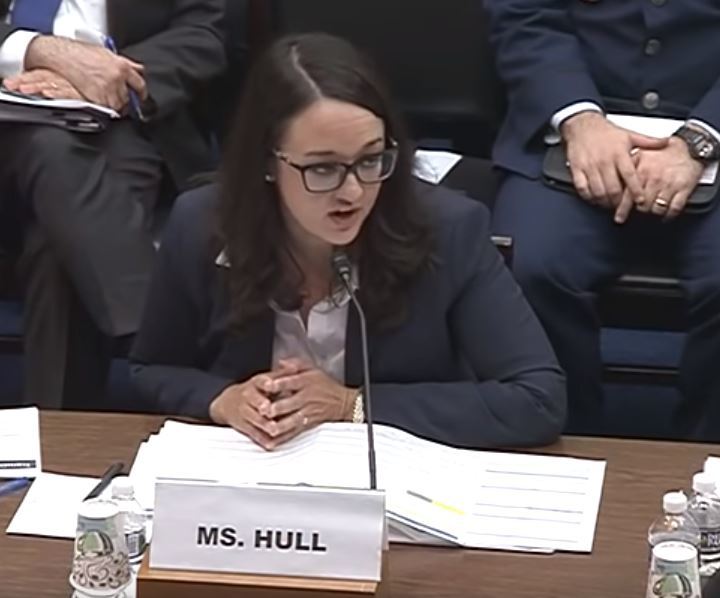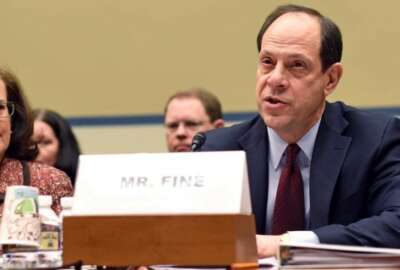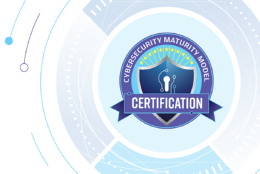
New DoD policy aims to crack down on alleged price gouging by TransDigm
A new DoD policy memo demands more data to support the prices the military pays for spare parts. But it only applies to one company.
Best listening experience is on Chrome, Firefox or Safari. Subscribe to Federal Drive’s daily audio interviews on Apple Podcasts or PodcastOne.
Defense procurement officials have taken a step toward cracking down on what they have called price gouging within the military spare parts market. They issued a new edict that requires DoD contracting officers to gather cost and pricing data when they enter into agreements with TransDigm Group.
The memo, signed on Friday by Kim Herrington, DoD’s acting director for Defense Pricing and Contracting, tells contracting officers they must “require” that TransDigm turn over uncertified cost data to support the prices the company is charging the government. The mandate applies to situations where TransDigm or its subsidiaries are the only makers of a particular part, a scenario that applies to the vast majority of the company’s business.
The order also tells contracting officers to treat many of their contracts for parts the company makes as non-competitive — even when two or more resellers are bidding to supply the same item.

“The definition of adequate price competition does not address the fact that a sole manufacturer (such as TransDigm) participating in a competition can effectively control the competition by its ability to establish the material pricing for all other offerors,” Herrington wrote. “In these situations, the department does not consider such rigged competitions to be adequate price competition, based on independently submitted offers.”
The memo is highly unusual in that it targets one particular company, rather than laying out a broadly-applicable policy.
It was prompted by a February 2019 DoD inspector general report which found that TransDigm was routinely earning “excess profits” in its Defense contracts. For 17 of the 47 parts in a sample auditors examined, they calculated the company’s profit margins at 1,000% or more, and deemed all but one of the parts to have been marked up to unreasonable levels.
“[The memo] is a step in the right direction by addressing a known issue for one contractor,” Theresa Hull, the assistant inspector general for acquisition, contract and sustainment issues said in an email to Federal News Network on Wednesday. “However, the DoD needs to continue to work to identify additional companies that employ similar tactics as TransDigm.”
In their written report, Hull’s team urged policymakers not to focus their remedies to overcharging problems in the spare parts market exclusively on TransDigm.
The root of the problem, the IG office said, is that contracting officers often have no way to demand to see a company’s underlying cost data even when they believe it’s the only way to determine if the government is being charged a fair and reasonable price. Under current law, vendors are not obliged to furnish that data when any individual transaction falls below the threshold set by the Truth in Negotiations Act (TINA), currently set at $2 million.
But the report also concluded that neither TransDigm nor Defense acquisition personnel had done anything illegal, a point the company highlighted on Wednesday.
Related Stories
But the IG report found that contracting officers had in fact requested that data for 16 of the 47 contracts. TransDigm complied with those requests in only one instance: For a contract that came in above the TINA threshold, and where the company was legally required to turn over the documentation.
And a follow-on investigation by the House Oversight and Reform Committee quoted former company employees-turned-whistleblowers who said they had been “coached” to keep transactions below the TINA threshold and avoid handing over cost data whenever possible.
Because of that, the special scrutiny DoD is applying to its TransDigm contracts is reasonable, said Rep. Ro Khanna (D-Calif.), a member of the committee who requested the initial IG report and who has taken a lead in the Congressional investigation.
“It’s more than evident that TransDigm can’t be trusted, so singling them out is warranted. TransDigm is price gouging both the DoD and American taxpayer. I am hopeful to see my NDAA amendment pass, doing this for every company where a contractor suspects foul play,” he said, referring to a proposal that would give individual contracting officers more discretion to demand pricing data for small-dollar contracts.
But to the extent DoD has a problem with overpaying for spare parts, the new Pentagon policy on TransDigm appears to only treat one symptom, said Christoph Mlinarchik, a procurement consultant who advises both the Pentagon and private clients.
“This may be the best moment in the history of government contracting to employ the cheeky colloquialism, ‘Don’t hate the player, hate the game,’” he said. “Congress and the DoD need to change the game by amending the laws and regulations and expanding competition in the spare parts market, not chasing after TransDigm. Crucifying one company provides much sound and fury, but changes nothing in the grand scheme. The fact that this official DoD policy memo targets only one specific company reveals its impotence.”
Mlinarchik said it’s not even clear whether the memo will have a meaningful effect on DoD’s specific contracts with TransDigm.
Latest Defense News
“If the DoD needs these spare parts, how can the DoD avoid awarding the contract to Transdigm, if Transdigm is the sole source?” he asked. “This memo does absolutely nothing to change the two paramount factors in this saga: the sole-source spare parts market and the rules for disclosing cost or pricing data. Instead, it looks like an effort by the DoD to ‘do something’ in light of recent inspector general, Congressional, and media interest. The laws and regulations for disclosure of cost or pricing data have not changed. The spare parts market has not grown more competitive.”
TransDigm agreed last month to repay the specific overcharges the IG identified in its report and began the process of returning $16.1 million to the government.
But lawmakers have pointed out the contracts examined in the report make up only a small share of the firm’s business with the government. Four members of the Oversight Committee, including Khanna and Chairman Elijah Cummings, have asked the IG to conduct a much broader audit that would examine each and every one of TransDigm’s contracts.
And DoD’s previous comments suggest the department intends to take more actions to target excess profits in the spare parts market. Pentagon acquisition leaders have already asked DoD components for a list of firms who routinely decline to turn over cost data. Meanwhile, the Defense Contract Management Agency will begin conducting its own analyses to figure out the proper pricing for “high priority” parts.
Kevin Fahey, the assistant secretary of Defense for acquisition, told Congress last month that the department was taking the steps somewhat reluctantly.
“We have to deal with companies like Transdigm — it’s a very small percentage of bad actors that results in rules and regulations that bogs down the entire acquisition system and results in overhead and bureaucracy,” he said. “That’s why this gets under my skin. It makes me sick.”
Copyright © 2024 Federal News Network. All rights reserved. This website is not intended for users located within the European Economic Area.
Jared Serbu is deputy editor of Federal News Network and reports on the Defense Department’s contracting, legislative, workforce and IT issues.
Follow @jserbuWFED









